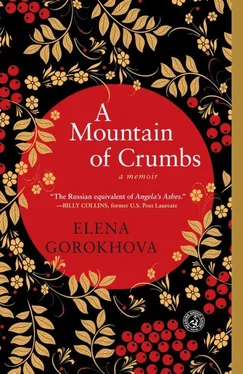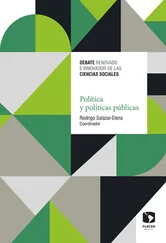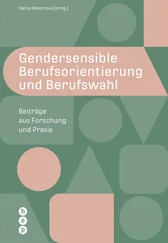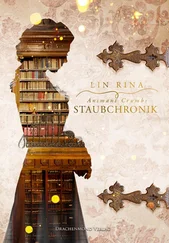In her first year of medical school she was taught by the novel “brigade” method: one student, the brigadier, took exams for the entire group of twenty. My mother pitied gangly Igor, who stood sweating in front of her class, craning his skinny neck over a textbook to read page after page in his monotonous voice, something about molecules and cells, a biology chapter he would be tested on at the end of the week. The test would either give credit to everyone in the group, now busy talking, daydreaming, and dozing off, or doom the whole lot to failure. Diligent and boring, Igor always passed.
By the second year, the brigade method was replaced with individual learning. A professor of anatomy arrived all the way from Moscow and promptly issued a failing grade to a former tractor driver. The days of dozing and daydreaming were over.
For the first time at the Medical Institute, my mother opened a textbook and by sheer force of will memorized the name of every bone, vein, muscle, tissue, tendon, and joint. She passed the anatomy final. She passed the surgery internship and the most serious exam of all, in scientific communism, a course hastily spun from quotes of Marx, Engels, and Lenin, a requirement for graduation in every university of the Soviet Union, across all its eleven time zones.
Three months after graduation, my mother was the chief and only physician of a fifteen-bed rural hospital thirty kilometers from Ivanovo, near a factory that produced bricks of peat mined from the nearby underground swamps. Brimming with energy and the enthusiasm of the first socialist generation, she was eager to make things better. It was 1937, the twentieth year of Soviet power, the busiest year of the Gulag camps. It was the twenty-third year of my mother’s life—when, for the first time, she left her parents’ home, when her future rose on the horizon like the huge crimson sun over the swamp outside her new apartment window.
She set up a trauma point where she bandaged victims of accidents, mostly work-related: severed fingers, broken arms, bruised backs and shoulders. But she knew she could do more. Although most of the factory workers were women, there was no maternity ward in the hospital. To give birth, women had to take a horse-drawn carriage to a district hospital eight kilometers away, a long ride on a road often buried under snow or washed out by rain. There had already been two babies born en route, one of whom did not survive the trip. She made a call to the local health department and was told that maternity wards were not a top priority at a time when epidemics of typhus and tuberculosis were mowing down entire towns.
Indignant at such a lack of insight on the part of the local authorities, my mother sat down and wrote a letter to the real leader. General Secretary, Moscow, the Kremlin. “Dear Comrade Stalin,” she began. “The patients at my hospital have no place to give birth to our new citizens. The Soviet women, who toil in peat swamps for our common bright future, deserve better.” She stopped to consider how to word her request so that in one simple, effective sentence she would cut through the necessary layers of steel to what she knew was the leader’s compassionate heart. “My apartment can easily be turned into a maternity ward with the help of a few necessary pieces of equipment (list attached). Please help.”
She thought of the best way to sign the letter, vacillating from “comrade” to “citizen” to “physician.” Comrade seemed too self-promoting: how could she be a comrade to the legend? Citizen was too impersonal. She finally chose her professional title, which still sounded strange, Dr. Galina Kuzminova.
The letter, she knew, was a gamble. Only months earlier, when she was living in the Ivanovo apartment with her parents, her siblings, and her uncle, there had been a knock on the door in the middle of the night. It was a loud, demanding knock, the kind that came only at two or three in the morning, the kind that everyone recognized even if they’d never heard it before. Two men in black coats marched straight to the room where her uncle Volya lived with his wife and fifteen-year-old daughter, turned the mattresses and all the drawers upside down, and announced that Uncle Volya was under arrest.
“For what?” asked Aunt Lilya in a ragged voice.
“You’ll find out,” muttered one of the men.
Uncle Volya stood in the middle of the room, in silly flannel pajamas, trying to quell an asthma attack. His round shoulders were slouched forward, and his mouth gasped for breath as he mopped his forehead with a handkerchief. “It’s all a mistake, a misunderstanding,” he whispered as soon as he could muster enough air, the handkerchief in his hand quivering. The men ordered him to put on a coat and escorted him to a van known as a voronok , or black raven, parked in front of their house. Weeks later Aunt Lilya learned that as part of his job in a propaganda agency, he’d taken a stranger from Moscow to a restaurant. There, sitting next to a good citizen dispatched by the NKVD—the People’s Commissariat for Internal Affairs—to listen to conversations with strangers, Uncle Volya told a joke.
It wasn’t even a political joke. Two militiamen are invited to Comrade Kozlov’s birthday party. What should we give him? asks one. The best gift is a book, says the other. No, says the first militiaman. Comrade Kozlov already has a book .
They had all heard this joke before, but now it sounded unfunny and flat. Why did Uncle Volya even bother telling such a bad joke? My mother knew he should have been more careful around strangers. Pasted all over town were posters of a woman in a red head kerchief with a finger across her lips and a caption ne boltai in big red letters: do not babble. Babbling was only one step away from treason. Still, she believed that the NKVD had made a mistake. How could Comrade Stalin possibly have arrested an innocent man, her meek and soft-jowled Uncle Volya? Everyone knew that Comrade Stalin wanted everyone to have a good life, whether they were peasants or professors.
Yet there it was still fresh in her memory, the image of her uncle’s trembling handkerchief and his arm missing the sleeve of his coat as the two men yanked all ten volumes of his collected works of Chekhov off the shelf, shaking them open, tossing them on the floor, angry that they could find nothing inside.
My mother also thought of my grandfather, who, in 1921, according to family lore, had telegraphed Lenin when a train full of wheat brought for the starving people of Ivanovo had been detained by a squadron of Red Army soldiers with shotguns. A few hours later, as the story went, the train was allowed to pass, thanks to her father’s telegram.
In her mind, the scene of Uncle Volya being led away into the black voronok for telling a joke wrestled for a few minutes with the happy image of the Ivanovo citizens saved from starvation by a telegram. She stubbornly decided to believe that Stalin did not know of this obvious injustice, that it all happened as the result of an un-Soviet struggle for power among his crooked underlings.
But now she was writing directly to Stalin, the country’s conscience and revolutionary glory. My mother signed the letter, folded it in quarters, and gave the envelope to Fyodor, who tended to the hospital horse Verochka and every other day drove the buggy eight kilometers to the nearest town.
A few weeks later, when routine traumas and illnesses had focused her attention away from the letter addressed to the Kremlin, she was called to the office of the head of the district health department. Comrade Palkin sat behind a desk, decked out in a military uniform like Stalin and thin-framed round glasses like the head of the NKVD, Beria. His head was small and bald, with wisps of down over the ears, and his thick forearms, which looked like they belonged to a bigger man, lay on the desk like logs. Leaning over the papers before him as if they were his prisoners, he failed to get up when my mother walked in, despite my grandmother’s assertion that a man had no choice but to stand when a woman entered a room.
Читать дальше












